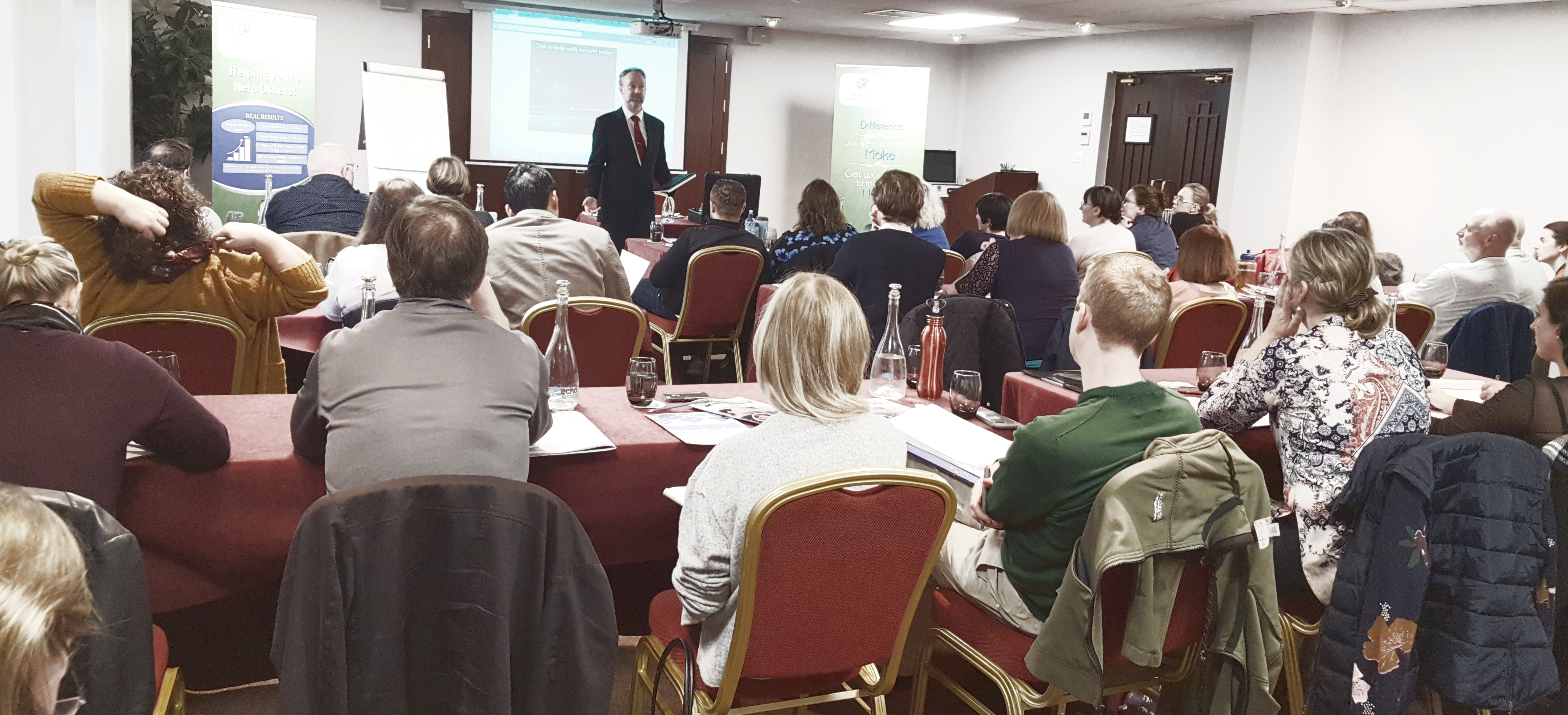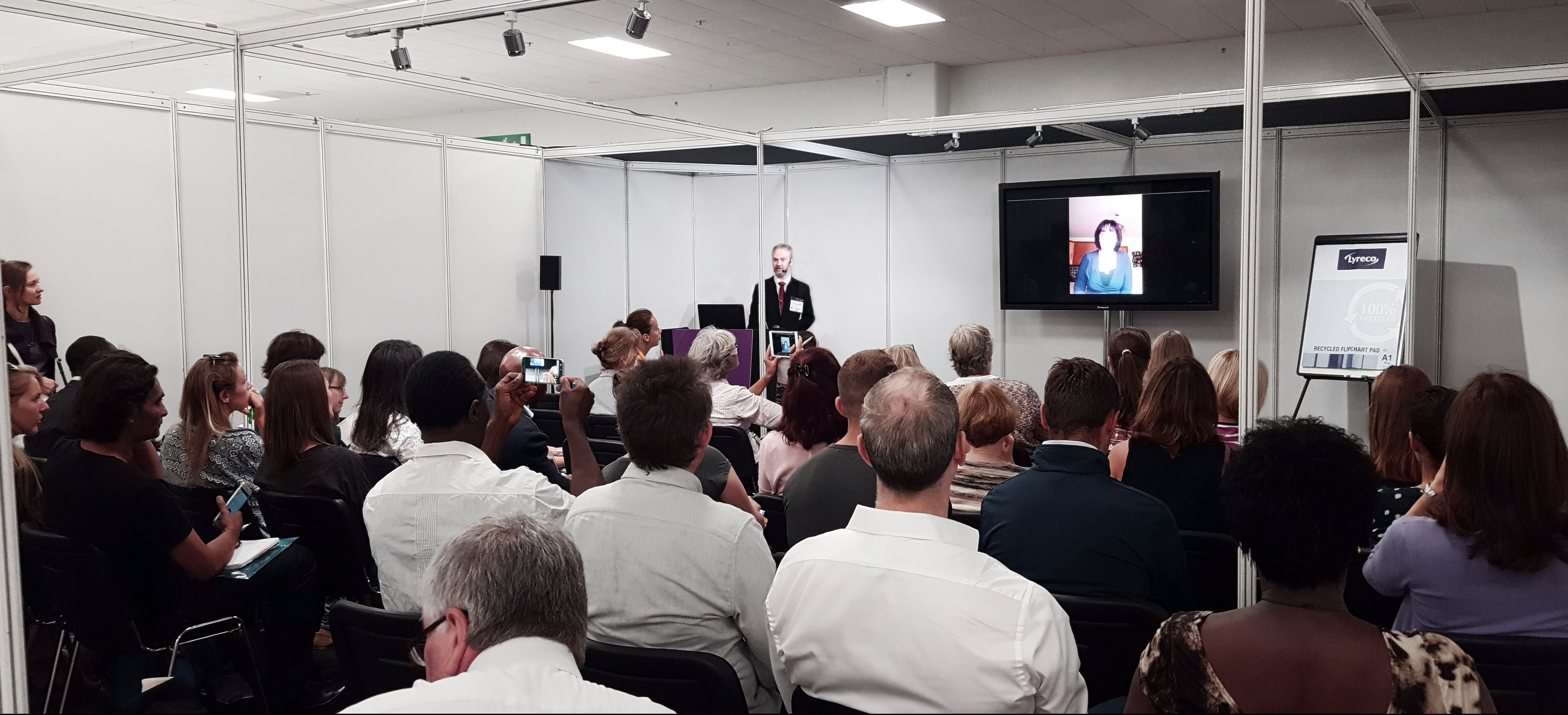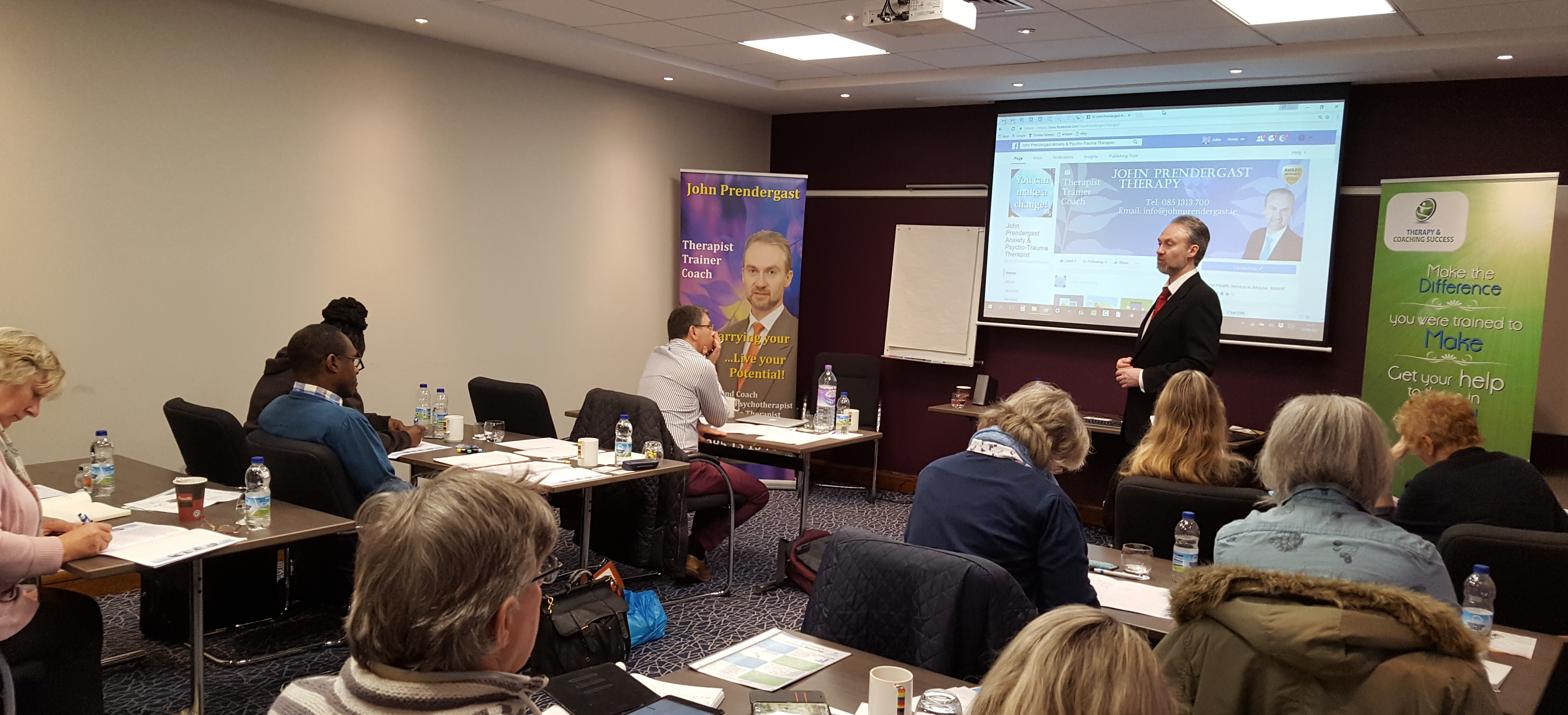 The fear of failure, lack of money, stress about being good enough, worry about where our next client will find us, or even if they will at all, can make being a self-employed therapist or coach a pretty stressful choice.
The fear of failure, lack of money, stress about being good enough, worry about where our next client will find us, or even if they will at all, can make being a self-employed therapist or coach a pretty stressful choice.
We all want to make a difference, to make the world a bit better by helping people, to reduce suffering, and to earn a living doing something so meaningful.
It should be win / win and easy – we deliver real help, people get huge benefits. Why is it so hard?
When I’d suffered decades of severe anxiety and depression, I needed help. It was available all through my life , yet I never found it until I was 37. Therapists were there, the exact method that worked at age 37 was there when I was 7. What was the problem?
We can’t just ‘advertise’ in the traditional ways. It doesn’t reach and connect with people. We must make our message resonate with the person suffering if we want to help them.
That’s the missing link. We’re never taught how to do this when we learn our helping-people skills.
So, here are the 10 most common barriers to success which have come up time and time again, as I've helped hundreds of therapists across over a dozen countries.
10. Lack of money
This is usually a barrier in our heads rather than a real issue. There is an expectation that it must be expensive to start and build a business.
It doesn’t have to be.
There are lots of low cost options. Don’t have your own office? I’ve seen people rent other therapists offices on days they’re not there or hire a meeting room in a hotel. Both low cost options. I know therapists and coaches working over the phone and online video conferencing, another two even cheaper options.
Advertising can be expensive, sure. I was spending nearly six thousand a year to be nearly busy, but all I needed was to get past my fear of Social Media and work out Facebook – that now keeps me booked out with a waiting list for under three hundred a year! Way cheaper.
My advice is: start with the cheaper options and then switch to others which may have more initial outlay, but save money in the longer term. (For example my own office saves me money now, but when I had one client to see it was out of reach).
9. Not comfortable with technology
 That was me. I know that’s hard to believe these days, but I had a knot in my stomach about using Facebook to start with.
That was me. I know that’s hard to believe these days, but I had a knot in my stomach about using Facebook to start with.
If something is holding me back ,I weigh it against the cost of not doing it. ‘is my fear of technology more important than helping hundreds of people every year?’
These sort of questions can really help put things in context. We can learn whatever we need. Usually we hold back by avoiding what is really on the line.
So, what would be better – learning to use some technology, maybe getting training or having a friend show us, or having to work a job we don’t want just for money because we didn’t make the career helping people a reality?
8. Uncertainty over which options are best.
 I hear you. This can strangle us. There are so many options. Here’s my key advice. Don’t take advice from anyone who is not already successful in your business.
I hear you. This can strangle us. There are so many options. Here’s my key advice. Don’t take advice from anyone who is not already successful in your business.
I get more advice from people who are broke or who are generic marketing pros with no idea how therapy and coaching works when it comes to reaching clients. If they are not doing this themselves they are not experts, no matter how persuasive they are.
Ask people you know are successful. See what they recommend. Balance all choices with what it costs versus what can it deliver. Be pushy, this is your future and the future of those you can help we’re talking about.
7. Not sure how to start their practice – home, office etc.
 Most often the holding back here comes from imagining problems. Every option is a solution. They all let us help people. Get started, then get better options.
Most often the holding back here comes from imagining problems. Every option is a solution. They all let us help people. Get started, then get better options.
I know one very talented therapist who held back because she imagined hiring an office to work from would be prohibitively expensive. I pushed her to look and she found a room in a therapy centre at fifteen an hour. Yup, she felt foolish for having held back, but is now helping people every week and earning an income too.
6. What if someone is mean to me?
 What if you are so mean to yourself that you deny yourself an income, a career that makes the world a better place, and lets people suffering continue to linger without help? That’s the exchange for hiding.
What if you are so mean to yourself that you deny yourself an income, a career that makes the world a better place, and lets people suffering continue to linger without help? That’s the exchange for hiding.
You know what, someone probably will be mean to you at some point. Particularly if you deal with any psychological issues. It’s about where they are, not about us.
If you want to avoid all criticism the old saying holds true – ‘do nothing, be nothing, say nothing’. However, is that why you trained to help people? I think not.
5. Tried and failed – lost money, hesitant as a result.
A lot of us have been burned. However, that’s usually more about not understanding how to connect with the client in need than about us, what we offer, or how much we spent.
I often mention a wellness business in the UK that spent £500,000 on newspaper advertising. The result was 0 new clients. Was that about them, their offering, or how much money they committed to it? No, I know this because now they are a seven-figure business. All they had to do was connect with the needs of their clients.
Have heart. Look at what is and isn’t working. Identify who can help sort whatever isn’t working. Don’t simply put up with it – tackle it head on and make changes based on evidence. See #8 above!
4. Can’t find clients so stopped trying.
This is usually code for “I don’t have clients and am worried about money”. Normally we start second guessing this against ‘should I get a job’.
Morale can be low. Money can be low. However, these are not insurmountable issues. Weigh it against the effort of the other job. How many hours a week would I have to work as an alternative? How many hours am I putting into this one to make it work?
Usually at this stage, we do very little other than spend our time worrying . However, realising that we’re just sitting there worrying rather than building for success, can be a real wake up call.
Seeing how much time we have on hand can make us wake up and start building success. After all, if we have no time then we’re fine as it means we don’t need clients -we don’t have the time to see them!
If we could see 5, 10, 20 clients a week then that time is there now! Use it to find clients. Any work time without a client in front of you is time to work on finding the next client.
Don’t quit until a real effort has been made. See #8 above again.
3. What will people think?
Amazingly, this is a huge one. I say amazingly as we all deny this is an issue, but for a lot of people it is a huge impediment to get going.
Yes, we must put ourselves out there if we want to help people. Yes, some people will probably not understand what we do or why we do it. However, what would you rather have people think – you’re doing something about helping people, or you have a normal job?
In short, your desire to help has to be strong. Stronger than your fear or desire to hold back.
Whose opinion matters most to you?
The opinion of neighbours, or the opinion of the person stuck or suffering who needs your help?
What makes the bigger difference in the world?
If being unnoticed is the goal in life then that’s at odds with making the world a better place, helping people, earning a living, using our skills to help others, and getting to feel good about what we do and what we have accomplished in life.
Step forward and make a difference. Let the rest go!
2. Worry about being good enough in delivering help
What is I’m not good enough? What if they don’t change?
Well, they may not. You’re not gifted with supernatural powers. We don’t have magic.
Nothing works 100% of the time. People can have fears, they can be resistant to change, they can be seeking tacit permission not to change (for example, the smoker who is pushed to therapy. They can then say ‘I went to the best and I still smoke so leave me alone it’s not my fault'). There are any number of ways for people to stop attending.
But the truth is, I’ve yet to meet a therapist or coach who couldn’t help others.
If we’re not ready to take on all issues then fine, focus on what we’re most comfortable with. If I was uncomfortable helping with panic issues in general, then maybe I’d focus on phobias until I got more experience and my confidence grew.
If I didn’t want to handle back or neck-pain, then I could focus on elbows and knees until I gain more experience.
Find the part you’re most comfortable with. There are probably more people who need just that help, than you could ever see. It’s just a matter of identifying that need and putting it in front of the right people.
The question shouldn’t be ‘what can I do to get ready’, it should be ‘what can I help with right now?’
It may be that we can only help some people. It’ll probably be that we can help a lot of people.
Worrying what will happen if someone doesn’t change and holding back because of that guarantees that many, many people will never get to benefit from our help and will not change.
Your choice. Help as many as possible, or don’t try?
1. Fear of failure
This is the big one. We take it personally when things don’t go well, but more damaging than that is that we hold back from doing what would work, for fear it might not.
If I make a real effort to fill a room and it fails then that’s serious, however if I’m half hearted in my efforts then I have an excuse and my ego is protected.
I’ve done that. I’ve had the failures. They were my own fault because I was holding back. However, I tried again, and again until I can now reliably fill a room and help more people.
The truth is that everything we want is built by facing fear and stepping over it.
Fear holds us back, but we don’t make a difference by holding back. Build motivation, question any fears. Step up and accept there can be fear. It’s normal. It’s part of life. We can win over it. We can make a difference – and it gets easier each time we step out of our comfort zone.
I hope you will bring your help to a lot of people this year!
If you haven't already, Signup below to stay up to date:
John Prendergast is an award-winning Success Coach and and Psycho-Trauma Anxiety Therapist.
He is also the Founder of Therapy and Coaching Success that specialises in helping Therapists, Coaches and other Wellness Practitioners, connect with those in need, build their diaries and earn the income they need.
Why you need Therapy and Coaching Success Training
If you are:
 Starting a business in the Wellness industry and have trouble finding clients
Starting a business in the Wellness industry and have trouble finding clients
 A Therapist who wants to help more people, but are struggling to fill your diary
A Therapist who wants to help more people, but are struggling to fill your diary
 A Trainer or Coach who wants to increase their income, but find it hard to fill classes or seminars
A Trainer or Coach who wants to increase their income, but find it hard to fill classes or seminars
 A Wellness Practitioner who has done all the usual industry training on marketing and social media, and find that nothing has really worked
A Wellness Practitioner who has done all the usual industry training on marketing and social media, and find that nothing has really worked
 A Therapist or Coach with the desire and capacity to help more people, but your room is empty too often
A Therapist or Coach with the desire and capacity to help more people, but your room is empty too often
Make the Improvement, Impact and Income, you were trained to make!

Monthly Training Program
Great monthly training at a Tiny price!
In this program you get €1,200 worth of training for just €19.50 a month in the first year alone.
Sign up below and get your first month’s training: a 3-part course on how to craft your bio. Mine brings me €10,000+ a year!
Some Subjects Tackled in the Training:
Here’s a list of the subjects tackled in the first 6 months:
- Getting your Bio right and working for you
- Business cards: how to get results
- Getting and using Testimonials
- Newspaper advertising made easy
- Getting your price right
- Optimising flyers and leaflets
For more information click HERE









